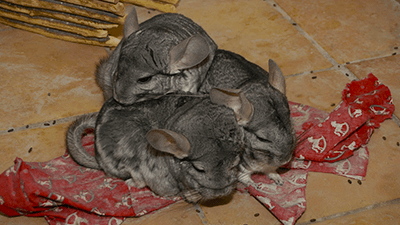If you adopt an animal at a shelter and then return it, it is usually deemed unadoptable and is destroyed? Also, if you surrender an animal to some shelters they can put it down in 1 hour.
Some kill shelters sell their animals to research centers.
Some shelters deal only with specific breeds that they get from various places and then “adopt” them out at high prices. It costs no more to take in a purebred animal than it does a mixed breed.

Some shelters state they are non-profit organizations but then also operate as a profit-making business by breeding and boarding kennels, etc. Is your donation going to the right place? Be careful of shelters that breed any animals.
Sometimes you just cannot get to see shelters, so ask questions. Refer to some of the tips we gave you. If you are not sure of the answers you received, ask a group you respect for their opinions. Anyone can say or send you anything in the mail.
Shelters that have many animals, especially a large number of young ones, may not spay or neuter their animals. Ask if their practice is to spay or neuter at least one sex. This should not be limited exclusively to dogs and cats. Be sure that guinea pigs, rabbits, etc. are also altered. If they do not, it could be a sign that they may be breeding and selling the animals. Unfortunately, some shelters consider animals a “numbers game,” whether it is high volume intake or breeding.

A good shelter should guarantee common health. This would mean there is a good maintenance program. This would include medical checks with good intake and outtake programs.
Some kill shelters complain about lack of funding to achieve their goals. However, they find the budget to attend seminars in and out of state on how to improve and kill humanely. Usually they are held at nice hotels or restaurants. Maybe it would be more cost effective if this data could be obtained by mail, phone, or electronically.
Consider organizations that only do foster care and question where the money goes. Usually, the foster home pays for most of the expenses, not the organization.
Did you know to become a non-profit, open a shelter, write a book or become a licensed trainer, education and experience are not requirements, only a fee?
Recently, we received a mailing from another animal organization asking us for a donation to help spay and neuter animals. We recognize the names of those on the board of directors as those affiliated with other larger organizations. We wondered if the existing shelters were already providing this service, or could this service be incorporated? Why was it necessary to establish yet another group to ask for donations for the same purpose? Why create the redundant expense of an office, employees, salaries, mailings, postage, etc. Also, do you wonder if these same people receive multiple salaries, expense accounts, and compensation at each new organization? Also, aren’t these the same people who have not completed the goals of their original organization?
We believe that shelters should be honest. We know that a city shelter’s mission is to protect the community. An animal rescue’s mission is to protect the animals. If its policy involves euthanasia, this fact should be made clear. To use misleading terms is very confusing to the public and it is very dangerous for the animals. If euthanasia is necessary due to lack of room at the shelter, why not provide the animals with a good quality of life while alive. Do we need a law to identify these entities? Beautiful buildings are appealing for people. Safety, fresh air, and room to roam are for the animals, the ones the rescues are there to protect.
Some kill shelters say that you can leave your animal with them when you die. Most kill shelters kill animals for reasons such as lack of room, behavior, terminal illness or other medical issues. It is astounding that they can offer this service with these polices on killing. When an owner passes on, whether it be a long-term illness or an unexpected death, the animal can be unusually stressed which may cause behavioral problems and illness. Also, if the person is ill for an extended period of time, the animal may not have gotten the same amount of attention it was used to receiving.
We suggest that you never leave your estate or animals to a kill shelter. Find three or four private people and/or a no kill free roam. Get to know the organization. If you do give your animal to an organization, make sure you have someone who can check on the whereabouts of your animal
periodically. Obtain detailed plans covering each of your issues for your pet’s welfare in writing. This will eliminate any concern you may have for your companions.
If you have a concern about an organization, please put it writing and mail it to us at P.O. Box 1143, Brighton, Colorado 80601.
